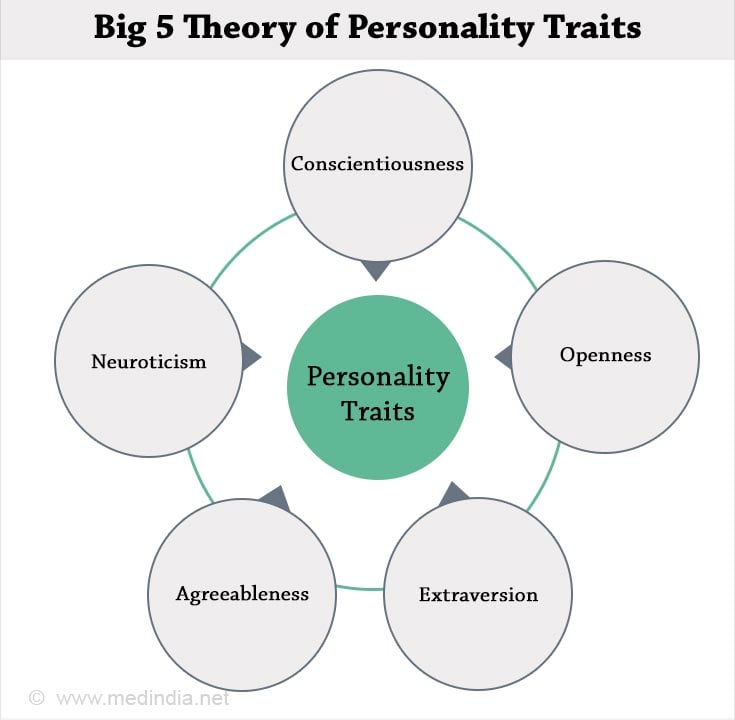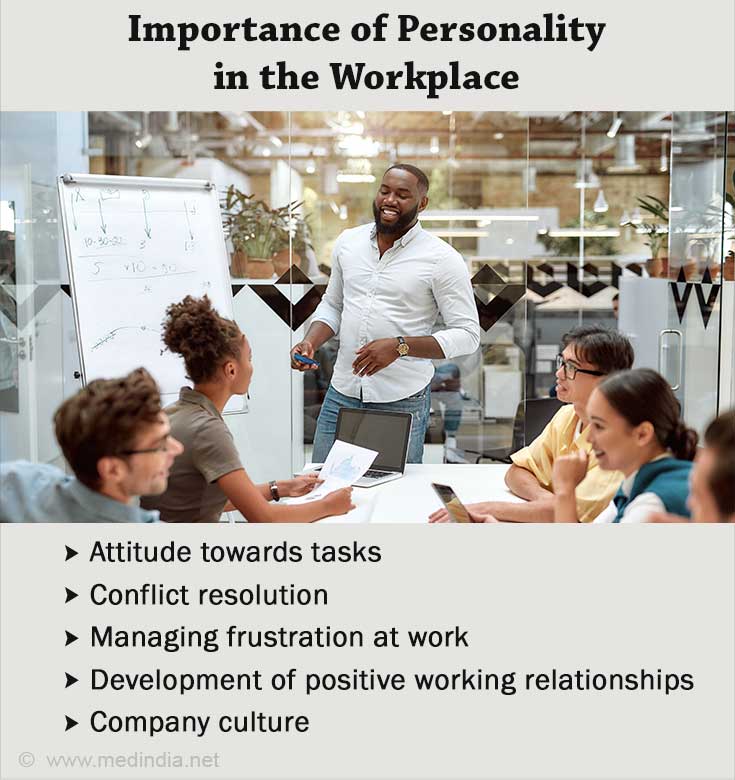- Type A and B Personality - (https://www.simplypsychology.org/personality-a.html)
- What Are The Big 5 Personality Traits? - (https://www.thomas.co/resources/type/hr-guides/what-are-big-5-personality-traits)
- Type B Personality - (https://www.thomas.co/resources/type/hr-blog/type-b-personality)
- Psychoanalytic Theory of Personality - (https://www.rajras.in/psychoanalytic-theory-of-personality/)
- Locus of Control - (http://changingminds.org/explanations/preferences/locus_control.htm)
- Impact of Personality Traits on Conflict Management and Leadership Styles - (https://amity.edu/UserFiles/admaa/fffbcPaper%205.pdf)
- Affective Reactions to Interpersonal Conflict at Work: Dispositional and Situational Moderator - (https://www.researchgate.net/publication/228195265_Affective_Reactions_to_Interpersonal_Conflict_at_Work_Dispositional_and_Situational_Moderators)
- The Relationships between Coping, Gender and Personality on the Experience of Interpersonal Conflict at Work - (https://researchcommons.waikato.ac.nz/handle/10289/5300)
- MBTI® Type at Work - (https://www.myersbriggs.org/type-use-for-everyday-life/mbti-type-at-work/)
- How companies use the Myers-Briggs system to evaluate employees - (https://www.marketplace.org/2018/10/30/myers-briggs-system-evaluate-employees/)
- What Happens When Your Career Becomes Your Whole Identity - (https://hbr.org/2019/12/what-happens-when-your-career-becomes-your-whole-identity)
- Personality can be changed at work: Why and how? - (https://www.transformingsociety.co.uk/2021/06/08/personality-can-be-changed-at-work-why-and-how/)
- List Of Workshops - (http://www.bizwrks.us/grow-your-organization-as-a-great-place-to-work/list-of-workshops/)
What is Personality?
Personality refers to a set of unique thoughts, emotions, and behaviors that differentiate people from each other. Personality determines how each of us functions in different situations, including the workplace. Several theorists have contributed to different ways of looking at personality.
The Big 5 Theory suggests that personality consists of 5 traits:

- Neuroticism
- Conscientiousness
- Openness
- Agreeableness
- Extraversion
There is also a personality assessment based on the theory. Individuals are rated on each trait to give an overall understanding of their character.
The Type A and Type B personality theory divides personality based on behavior.
| Type A | Type B |
| Type A personality refers to an individual who iscompetitive, impatient, dominating, organized, and has a sense of time urgency. This individual is likely to multitask. | Type B personality refers to an individual who is more relaxed, flexible, has low-stress levels, creative, laid back, and adaptable. This individual is more likely to procrastinate. |
The psychoanalytic theory of personality proposed by Freud focuses on the Id, Ego, and Superego. The id is unconscious and consists of primal urges, the ego is rational and conscious, and the superego governs morality and conscience.
The locus of control theory suggests that individuals have either an internal or external locus of control. An internal locus of control refers to believing that one’s own actions and traits determine success and failure. An external locus of control refers to believing that outcomes are not in one’s control but attributable to luck, fate, or chance.
Personality in the Workplace: Why is it Important?
Personality is important in the workplace because it plays a role in several factors at work including attitude towards tasks, conflict resolution, managing frustration at work, development of positive working relationships and overall company culture.

Personality assessments can be used in the hiring process of individuals. This increases the chances that the employee is suited to the company’s work culture and the nature of tasks that they have to engage in. For example, someone with openness to experience would excel at creative and abstract tasks. A conscientious person can be counted upon to meet deadlines and is therefore suited to jobs that need timely completion of work. Such assessments can also help choose jobs. For example, a person who has a high superego may thrive in the judicial field.
Personality traits also influence one’s attitude to work. Someone with a Type A personality is more suited to the corporate culture, emphasizing productivity and time management. This includes jobs such as sales and marketing, financial managers, communication managers, or newsreaders.
On the other hand, someone with a Type B personality would be suited to jobs like being a therapist, teacher, psychologist, or artist. These individuals are more agreeable, open to experiences, and relaxed.
Conflicts at work are mediated by different factors, including monotony, job satisfaction, commitment, stress level, nature of work, and personality traits. Agreeable individuals are less likely to engage in conflict and are also expected to possess higher emotional intelligence. Individuals scoring higher in neuroticism are more likely to be involved in interpersonal conflicts at the workplace.
Studies show that locus of control and conscientiousness are implicated in conflicts at work. An internal locus of control was found to be related to conflicts related to tasks assigned. Neuroticism played a role in both task-related and relationship-related conflicts. Conscientiousness was a protective factor with respect to both types of conflicts. People who are agreeable and Type B individuals are likely to handle workplace frustrations better.
The locus of control theory can also be applied in the formation of positive working relationships. An individual with an internal locus of control is more likely to take responsibility for their actions and find solutions with other employees.
The Myer Briggs Type Indicator Assessment can be used both in career selection, recruitment, team building, and managing tasks efficiently. This identifies 16 types with different traits.
Ways to Not Lose Your Personality in the Workplace

- Havingspecific expertise that is based on one’s interests, skills, and aptitude
- Carrying on meaningful conversations with coworkers and clients
- Choosing a job that is aligned with one’s values
- Being honest about one’s opinions both professionally and personally
- Finding own ways to stay motivated and productive
- Open communication with superiors about needs and difficulties
- Setting boundaries with respect to tasks and relationships in the workplace
- Ensuring to have time for oneself outside work where one can engage in hobbies
- Being in touch with one’sthoughts, feelings and behaviors by journaling
- Maintaining a healthy work-life balance
- Accepting that different people may work differently, and it is okay to follow one’s own approach
- One can try to foster healthy relationships at work, but that does mean they need to change themselves altogether
- Reminding self that work is just one facet of life
- Looking at work duties as a practical task rather than a personal one
- Shifting jobs if there are very adverse effects
Balancing Work, Personality and Relationships at the Workplace
It is essential to balance between work, personality, and interpersonal relationships at the workplace. Two individuals doing the same job may approach tasks and relationships differently due to their personality. People can’t be identical copies of each other like robots.
Allowing one’s job to change one’s personality can have positive effects sometimes. It can foster an internal locus of control, responsibility, ability to adapt, and improved coping with stressful situations. But there must be an equilibrium.
When individuals find themselves working to the extent that work consumes their lives, there is a sign that they may not have a healthy balance. To complete tasks or maintain relationships, if an employee is compromising parts of themselves, they are likely to feel dissatisfied or burnt-out soon. Therefore, considering both personal and professional factors, a healthy balance is ideal.








